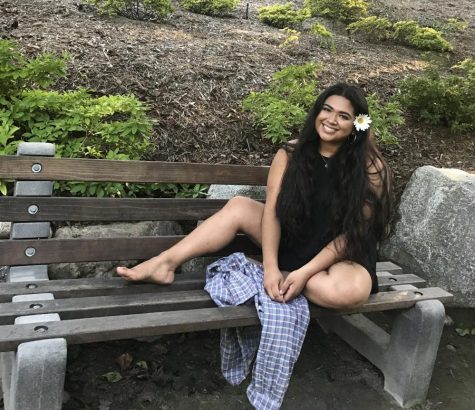Women’s History Month is almost halfway through, and Mesa College has presented an abundance of events for the community that range from shared poetry to informative sessions on abuse, standing in solidarity with women, women’s rights, and their historic triumphs throughout time.
Laurie MacKenzie, Behavioral Sciences & Multicultural Studies’ co-chair, put together “Women Victims/Women Survivors” aimed to shine light on the seriousness of sex trafficking, abusive relationships, and how to seek help or find help for those in need of it. A panel of four women spoke on behalf of organizations they worked with as well as their own personal success stories and the importance of this month.
“It is one of the most important months, it is about talking and listening,” said MacKenzie when speaking about the importance of Women’s History Month. With a presidential campaign that included slandering and degrading of women, MacKenzie reminded her audience of college students that this year specifically may just be one of the most important ones for her personally thus far.
The event was centralized around different women, each with a different story to tell or information to share.
Marcella Maggio, a six-year prevention coordinator for the Center for Community Solutions, whose mission according to their website “is to end relationship and sexual violence by being a catalyst for caring communities and social justice,” shared the signs of a domestically violent relationship.
“Domestic violence is a pattern of assaultive and manipulative behaviors done by a partner or ex-partner in order to gain power and maintain control of the relationship,” said Maggio. She assured her audience that abuse did not have to only be physical for it to be considered abuse, but could also be sexual, emotional/psychological/verbal, economic, and even spiritual.
“Many times we have this mentality that ‘if I’m not being physically abused, I’m not being abused’” said Maggio about the many women who do not speak up on the abusive behavior that they endure.
“One in three women will experience domestic violence in their lifetime,” stated Maggio, “and many women think to themselves ‘Who is here to help me?’” The Center for Community Solutions San Diego offers free and confidential services for those who need it. From legal assistance to transitional housing, CCSSD will provide as much help to anybody who seeks it. It is important to note that CCSSD helps people regardless of legal status, which is one reason Maggio described is a barrier that keeps people from seeking help.
Marisa Ugarte, Executive Director of the Bilateral Safety Corridor Coalition, explained the dark and twisted realities of human trafficking and exploited labor. With over 20 years of advocacy experience, Ugarte is a voice for exploited women, men, and children, who she explained are usually those of hispanic roots, fleeing from their troubled homelands south of the border.
Ugarte emphasized that, like domestic abuse, which is an umbrella term that consists of many other factors, “forms of exploitation are not limited to sexual trafficking.” Sharing stories of women and children that she had helped throughout the years, Ugarte explained how easily it is for children and women, especially minorities and those with illegal status in the country, are the one most targeted because they can usually be naive, scared, and easily tricked.
Crystal, a survivor of sex trafficking whose last name was not released, shared her personal struggles with abuse, drugs, and rape. Sharing what she considered a vulnerable but very important part of her, Crystal spoke about the early stages of her troubled path.
“I was scared from childhood trauma. I became hypersexual as I got older. The vulnerability is clear to predators,” said Crystal after explaining how her husband of eight years was also the man who introduced her to sex trafficking. “I loved him and I thought we were doing this because he loved me too.”
“There is not separating prostitution and sex trafficking. And nobody does it because they want to. When you are a part of sex trafficking, you are a victim of paid rape,” explained Crystal.
When asked how one of her clients asking her if she wanted to do what she was doing would have made a difference, Crystal answered, “I think it would’ve made me acknowledge that I was a victim… There is not tunnel. There is not light. You have to find a purpose, something to live for. I have my little boy.”
To get help, report a tip, or request services regarding human trafficking, you can call the National Human Trafficking Hotline at (888) 373-7888. For confidential services regarding domestic violence, you can visit http://www.ccssd.org, or call the 24-hour, toll-free crisis line at (888)385-4657.



